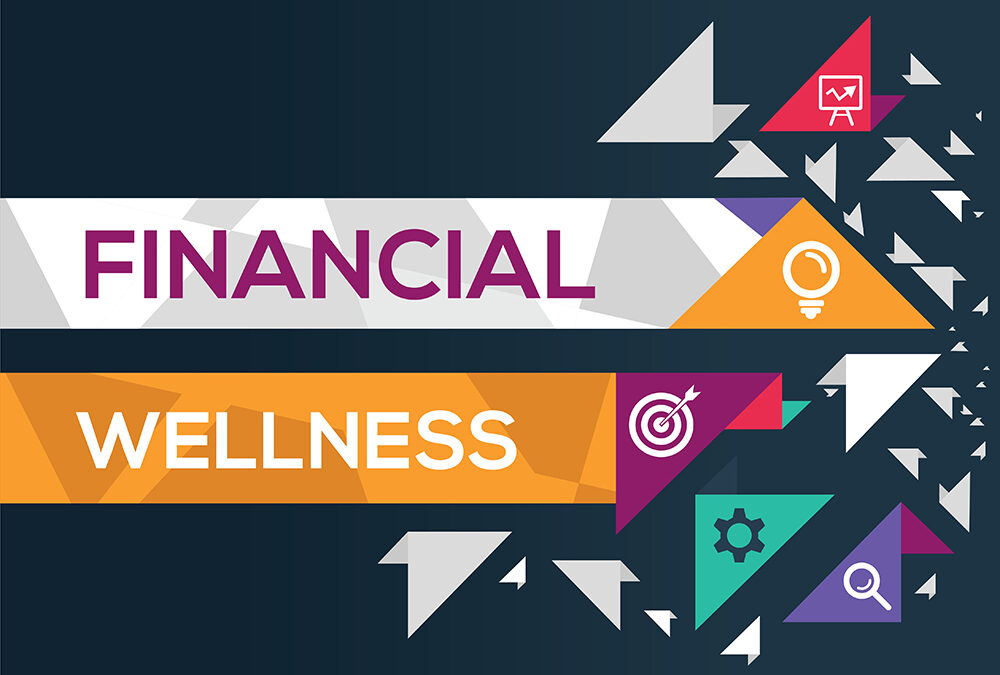By Eric Reich
January is Financial Wellness Month, which is the perfect time to get a jump on your finances for 2025. Starting the year off right, in terms of your finances, can help you manage stress and anxiety about money. After all, money is one of the highest causes of stress in America and the #1 thing couples argue about.
What is financial wellness? Much like your health-related wellness, it is an all-encompassing view of your financial life. This includes financial education, budgeting, saving and investing, managing debt, etc. Each of these components of financial wellness is important by itself. Collectively, they can put you on the path to not only peace of mind but financial freedom.
So, where should you begin? Well, in order to know where you are going, you need to know where you are now.
- You have to take stock of your current financial situation by laying out your current picture. What is your income? Expenses? Debt level? Current savings? Don’t forget to include investment accounts, 401(k)s, etc. You need to make sure your income exceeds your expenses in order to save and invest. If it doesn’t, then you need to look at everywhere you are currently spending money.
- The best way to track spending is to lay out a budget and compare what you are spending a year versus what you expected to spend. When creating a budget, don’t forget to include often overlooked items such as personal care (haircuts, nails, etc.), gifts for birthdays, and holidays as well. Use a budgeting app or online sample budget for you to follow.
- Now that you know where you are and have a budget, you need to develop a set of financial goals. Your budget can tell you if your debt is too high or you are paying too much interest. If so, your goals should include addressing all of those issues.
- Part of your goals must include an emergency savings fund for times when things pop up such as an unplanned home or car repair, loss of a job or a reduction of work hours. Shoot for 4-5 months’ worth of expenses in your emergency reserve.
- Debt management is key to achieving your financial goals. Too much debt can limit your ability to save and ultimately invest. Look at your debt and either start with the smallest debts first, or those with the highest interest rates. Look to get rid of credit card debts quickly since they tend to have the highest interest rates and also aren’t tax-deductible like mortgage interest is.
- Investing should follow these steps. The faster you can start investing, the faster you may be able to achieve financial freedom. The goal is to ultimately have your investments make more than you do from working. That’s true financial freedom. Being able to walk away from your job if you choose to because your investments earn more than you.
7 Lastly, if you are feeling overwhelmed by all of these steps, then seek the advice of a professional who can guide you through this process. The role of a financial planner is to guide you through wherever you need help financially.
While it might not be easy, getting your finances in order can be one of the most rewarding and confidence-boosting endeavors you can take on for yourself. There’s no better time to start than right now, at the beginning of the new year. Taking the first step is the hardest. However, before you know it, you’ll be on the road to financial wellness.
Securities offered through Kestra Investment Services, LLC (Kestra IS), member FINRA/SIPC. Investment advisory services offered through Kestra Advisory Services, LLC (Kestra AS), an affiliate of Kestra IS. Reich Asset Management, LLC is not affiliated with Kestra IS or Kestra AS. The opinions expressed in this commentary are those of the author and may not necessarily reflect those held by Kestra Investment Services, LLC or Kestra Advisory Services, LLC. This is for general information only and is not intended to provide specific investment advice or recommendations for any individual. It is suggested that you consult your financial professional, attorney, or tax advisor with regard to your individual situation. To view form CRS visit https://bit.ly/KF-Disclosures.
Eric is President and founder of Reich Asset Management, LLC. He relies on his 25 years of experience to help clients have an enjoyable retirement. He is aCertified Financial Planner™ and Certified Investment Management AnalystSM (CIMA®) and has earned his Chartered Life Underwriter® (CLU®) and Chartered Financial Consultant® (ChFC®) designations.


















